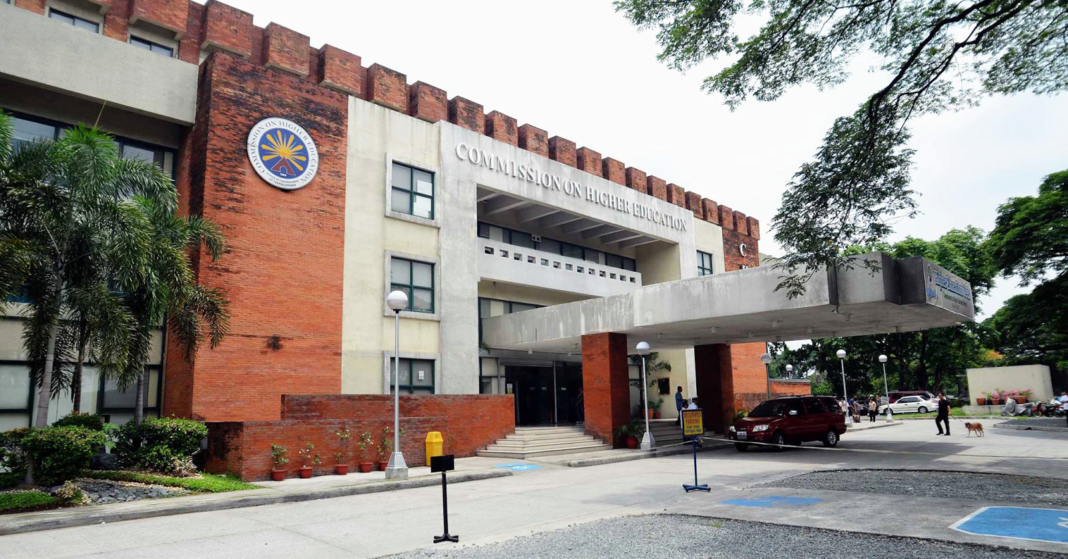THE COMMISSION on Higher Education (CHEd) is eyeing student participation in the process of amending the Constitution, following the creation of a Consultative Committee (Con-Com) to recommend changes to the 1987 charter.
CHEd tasked 112 state universities and colleges to form public forums to help students assess the effects of the overhaul in the Constitution’s educational and economic provisions.
Prospero de Vera III, CHEd officer-in-charge, said the goal was to generate discussions on charter change among students and teachers.
The new charter will not only install a federal government but also support the improvement of the educational system, he said.
“Because one frustration that a lot of people have about discussions on federalism is that we’re only talking about the political side. [We] should also engage on the more substantial side—how will education look like, how will social work look like, what are the economic realities in the region,” de Vera said during the first Philippines-United Kingdom Transnational Education Conference last Feb. 16.
Fr. Ranhilio Aquino, one of the 20 Palace-appointed members of the Con-Com, urged students to question the government’s plans and motives in amending the charter.
Changes to Constitution are expected to be taken up by Congress as a Constituent Assembly later this year.
“[Students] should ask us to tell them what the Constitution is being changed for and that will boil down to the basic difference of a unitary government and a federal government,” said Aquino, the San Beda Graduate School of Law dean.
Former Bayan Muna party-list Rep. Neri Colmenares called on students to watch out for provisions that would allow foreign ownership of schools, citing the proposed draft of the new charter under Resolution of Both Houses (RBH) 8.
“In the 1987 constitution, Filipino citizens are allowed to control, own and supervise the educational institutions in the country. But under the RBH 8, it would be open for foreign ownership and transnational corporations,” Colmenares told the Varsitarian.
Colmenares said foreign management of universities would pressure school administrators to impose tuition increases and curriculum shifts due to corporate influence.
“Aside from effects on tuition increase, the foreign investor’s curriculum would also be followed and nationalism or Filipino identity would be at risk,” he said.
Article 13 (G), Section 20 (2) of the RBH 8, filed on August 2, 2016, will mandate Congress to pass laws allowing foreign control of schools and other educational institutions.
“Educational institutions […] shall be owned solely by citizens of the Philippines or corporations or associations at least sixty per centum of the capital of which is owned by such citizens, unless otherwise provided by law,” the article read.
Article 12, Section 10 of the 1987 Constitution allows Congress to pass laws on foreign ownership and reserve at least 60 per cent of capital to Filipino citizens.
Despite to the foreign equity provisions in the RBH 8, the consultative body still seeks to maintain the regulation of foreign investments on industries as stated in the 1987 Constitution, Aquino said.
“The only things that the [Con-Com] will change are those able to operate in a federal government. Since that [foreign capital] provision really has no direct bearing on a federal government, I don’t think that would be changed,” Aquino told the Varsitarian.
UST Political Science professor Edmund Tayao, also a Con-Com member, said loose policies on admission of foreign investments would compromise national security.
“Even if you open up [schools] to foreign ownership, you should be able to qualify it in such a way [they] would not be in the control of the foreign investors,” Tayao said.
Tayao said the committee had yet to conduct deliberations on economic provisions but assured the public that the panel would “not leave anything to chance.”
Under the proposed federal government, each of the 18 regions of the country would be granted autonomy, which could allow more economic opportunities for local governments.
‘Weak charter education’
Edmundo Garcia, one of the framers of the 1987 Constitution, said the reason for Filipinos’ “apathy” toward charter change was the majority’s lack of awareness of the what the charter contains.
“First educate ourselves on the present constitution; 73 percent of our people are still not aware of our 1987 Constitution so there is this obligation to study it and discuss it and discern whether we need a new constitution right now,” he told the Varsitarian in a chance interview.
A 2016 Pulse Asia Survey showed that 73 percent of Filipinos have little or no knowledge of the constitution while 27 have substantial knowledge on the charter.
Dennis Coronacion, UST political science department chairman, echoed Garcia, saying a “diluted syllabus” under the new education curriculum had worsened the ignorance of Filipinos on the Constitution.
“The syllabus is diluted and has very weak component of the constitution. […] If 70 percent of the Filipinos are only aware of the Constitution, what more if you are going to dilute the component of the Constitution in the syllabus,” Coronacion told the Varsitarian.
In June 2015, the Department of Education moved the Constitution component of the Philippine Politics and Governance course to senior high school. It can only be taken by students taking the Humanities and Social Sciences strand.


















